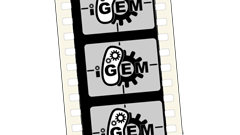Help:Requesting Parts
You've searched for and found a part you're interested in, and it has good quality control, but you've also found that a sample isn't available in your distribution kit. You can request a sample of that part by contacting iGEM HQ. Here's how!
The Registry community collection of parts has 7,000+ physical samples (and counting) that are available to community of users. The DNA distributions typically contain a smaller selection of these samples. Therefore, not all the part samples available through the Registry Repository are available in your distribution kit. You may be interested in using a part sample that is not available in your distribution, or you may find that a part sample in your distribution may have an alternate source with better QC results. In cases like these feel free to make a request by sending an email to hq (at) igem . org.
Note: You must have an iGEM account and be a member of a current iGEM team or lab group in order to obtain parts from the Registry. If you would like to become an iGEM lab see igem.org to join.
Is your part available?
Not all the parts on the Registry have available samples for request. Some parts are in the planning stage, and samples have yet to be sent to the Registry. The easiest way to identify if a part has an available sample would be to look at the part's status, located at the top right of the part's main page. We are only able to send out part samples that are listed as Available.
Note: Parts with a DNA status of DNA Planning have not been physically sent to the Registry. Therefore these parts are not available for request.
Making a Request
When you have found an available part you would like to request you should click on the Get This Part link located in the top right corner of the part's main page. The "Get This Part" page will list the available sample(s) and location(s) within the Registry Repository for that part, and also include the QC information that part sample has gone through.
The Get This Part page is extremely useful when requesting a part sample. It will tell you:
- if your part sample is already included in your Distribution Kit
- if there are multiple samples for the part in the Registry
- any QC information tied to the part sample
You can use the following information to email a request to hq (at) igem . org. The subject should be along the lines of "Part Request: [Your Team's Name]."
Be sure to include the following:
- iGEM team or lab name
- part name (BBa...)
- plasmid backbone and resistance
- sample location: source plate and well
- quality control information (if applicable): Sequence and Gel Result
Things to keep in mind
- Many of the part samples available through the Registry have undergone quality control testing. Prior to requesting a part sample, take a look at this information, as it should affect your decision on using it. See the quality control help page if you need help interpreting QC results on the "Get This Part" page.
- Prior to making a request it is helpful to consider all of the parts that the team needs for your project. We prefer bundling part requests together rather than receiving several small requests, as this cuts down shipping costs and improves efficiency.
- Once a request is made you should be contacted by iGEM HQ within two business days.
Shipping Times
For shipments within the United States shipping times are generally no more than two days through FedEx. For international shipments, shipping times through FedEx can differ by a number of days depending on the receiver's address.
Using agar stabs
We send out our part requests as agar stabs. The shelf life of these are short, so it is usually best to plate from the stab as soon as possible.
- The agar should already have a hole from when it was stabbed. With an inoculating loop dipped into the stab, you can plate directly onto a petri dish with the appropriate antibiotic.
- Incubate the dish overnight at 37C (14-16hr)
- Pick a single colony to start up a culture
- Miniprep to extract plasmid DNA
- Use the part!


